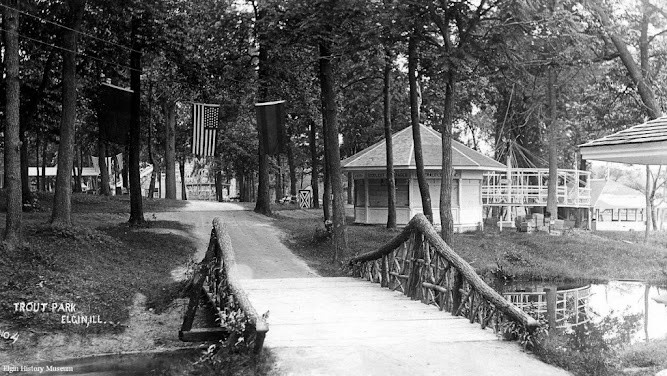RAINBOW PARK
Rainbow Park, a small amusement park, opened in 1950 on Lakehurst Road in Waukegan, Illinois, by a group of local businessmen. Rainbow Park featured a carousel, a Ferris wheel, and other kiddie rides. It was a popular destination for families and quickly became a fixture in the Waukegan community.
The park continued to grow and expand in the years that followed. New rides and attractions were added, and the park became a destination in the Chicago area.
In the early 1970s, the park added a few carnival rides, including a Ferris wheel, bumper cars, and a Tilt-A-Whirl.
Rainbow Park was renamed Fun Harbor USA in 1971 and underwent a major renovation.
FUN HARBOR USA
The park's entrance was redesigned, and several new rides and attractions were added. A water park was added, which became a popular attraction for families during the summer months. Fun Harbor continued to grow and evolve over the years. The park added some new rides, including a roller coaster and a water slide. The park also added new food vendors and arcade games.
In the late 1970s, Fun Harbor began to face financial difficulties. The park struggled to compete with Dunes Kiddieland and other amusement parks in the area. They eventually closed in 1981.
ABANDONED
The park sat abandoned for 11 years before it was purchased by new owners Marc Klibanow and Jim Persino in 1990.
FUN HARBOUR
Klibanow & Persino invested heavily in the park. The new and improved park reopened in 1992 under the name Fun Harbour. The amusement center had a large arcade with the latest pinball machines, video games, and Skee-Ball machines that dispensed tickets for performance in a "tickets-for-toys" system.
The variety of fun included batting cages and go-karts. An 18-hole, nautical-themed miniature golf course, rated by the US ProMiniGolf Association (USPMGA) at level 4 of 5 in difficulty.
There were three birthday party rooms: The Dolphin, The Mermaid and The Pirate. The closure of Fun Harbour in 2016 was due to a combination of factors, including declining attendance, competition from other amusement venues, and financial difficulties.
Compiled by Dr. Neil Gale, Ph.D.



